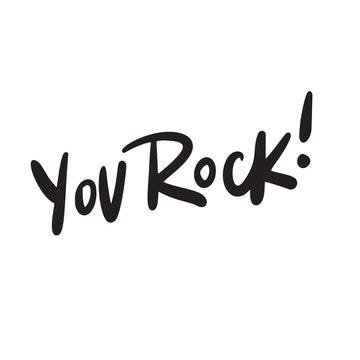Education Essentials

For many of us, January marks the start of new habits, goals and resolutions. I’ve never been big on “starting anew” after the ball drops; however, I do believe it’s a good time to reflect on the past year and ponder my priorities for the new one.
For parents of school-aged children, January also marks the end of the first half of the academic year. It’s often filled with stressful meetings and assessments to determine what services our kids will receive and how we’ll measure their progress in the second semester. While most of us want and need to refuel now, January usually doesn’t let us.
Perhaps that’s why I always dreaded this time of year when our son, Andrew, was in school. Instead of getting to the gym more, or treating myself to me-time after a hectic holiday season, I found myself knee-deep in IEP files and planning sessions. Like many of my friends and parenting peers, I committed myself to recognizing and complimenting the hard work of our son’s school teams and support staff. But what I really wanted during these long winter months was for someone to recognize me.
As we kick-off 2023, I want to provide that recognition to all special needs parents. If your child is school age, transitioning, or well into their adult years — you’ve been doing hard and important work for much longer than just the past semester. Hopefully, this newsletter gives you ideas about how to create, collaborate and celebrate the work we do — and continue helping your children learn to bloom, no matter what age.

May your coming year be filled with magic and dreams and good madness. I hope you read some fine books and kiss someone who thinks you're wonderful, and don't forget to make some art -- write or draw or build or sing or live as only you can. And I hope, somewhere in the next year, you surprise yourself.
― Neil Gaiman, Author
Forget Me Not
When our son entered kindergarten, the public school in Ohio recommended he be educated “up the hill” in a neighboring district with more disabled students. This wasn’t good for Andrew, but the district didn’t believe in inclusion. So we argued and advocated, and then moved to Connecticut. There, Andrew contributed greatly in inclusive classrooms and made tremendous progress intellectually, socially and extra-curricularly. Despite this success, our district ultimately suggested he attend high school more than one hour from home. History seemed to be repeating itself. Educators and administrators didn’t know how to adequately include or educate our son, so they recommended he go elsewhere. And we moved yet again.
When Andrew finally landed at an amazing public high school that wanted him and enthusiastically welcomed him, he excelled. He sang (in Latin!) with the school choir, traveled on school trips to Boston and Disney World, “ran” track and “played” basketball, exhibited at science fairs, and attended the prom. He also forgot to do his homework, aced and failed tests, developed personal passions and hobbies, and so much more. Just like his non-disabled peers. Through inclusion, Andrew learned alongside them. And vice-versa. As the research supports, they actually taught each other. A lot.

It was never really about Andrew, you see, but more about the districts: what they knew and didn’t know, what they were willing to invest in and admit to, how much they collaborated with us, and how vulnerable they were willing to be. It was also about us as parents: how hard we were willing to push, how much we were willing to take on, and how creative we could help people to be. (And, of course, it was actually ALL about Andrew…but you get the point.)
An incredible new documentary shines a spotlight on this subject, reminding me of not only the battles, but also the victories. I wish everyone I know would take the time to watch Forget Me Not, especially people who don’t have kids with disabilities. We all need to understand and care more about this issue. The film explains a complicated topic using real stories from real families. It helps viewers see and feel what it’s like to struggle and fight for societal change and to recognize that we’re talking about important civil rights here.
Ultimately, this film shows the devastating lack of inclusive leadership in our public schools. It's an inclusive leader who will say yes to changing a school district's practices. It's an inclusive leader that will lobby for policy changes at the state level. It's an inclusive leader who will work with a family's vision for their child instead of giving an ultimatum. If you are in higher education or teacher training, I highly encourage you to show this film to teacher candidates.
—Tim Villegas, Think Inclusive Founder
You can watch “Forget Me Not” here for free, or rent the film from Amazon or Vimeo.
Do you have a story to share on this topic? If so, please comment below so others can learn from your experiences.
Think college.
Thanks to important work by families, educators and lawmakers, Transition and Postsecondary Programs for Students with Intellectual Disability (TPSIDs) now exist at dozens of colleges and universities across the U.S. If your teenager with intellectual disabilities (ID) has interest in pursuing this type of education and experience after high school, check out Think College. They offer countless resources, including this comprehensive overview of what college options exist for students with ID, along with questions for parents to ask and processes to pay attention to as you plan for this possible option. Dream big and enroll your student in the planning. Who knows what might happen?

Siblings survey.
I’m currently gathering feedback from siblings of individuals with disabilities for a research/writing project. If you have someone in your family who is willing to help me, please forward this brief survey to them via e-mail. All replies will be anonymous, and I’m grateful for any and all input. Please also share this link with other families who may wish to provide perspective. Thanks so much.
Another Normal is a free e-newsletter for parents, caregivers and others committed to helping young adults with disabilities bloom and grow. If this copy was forwarded to you, sign-up for your own copy below. Welcome to our community.
Interested in learning more about working with Kris?
Contact us for information on what this might look like for you, including outcomes, availability, fees and more.
Stay connected with news and updates!
Sign up below to receive our newsletter and updates.
We hate SPAM. We will never sell your information, for any reason.


